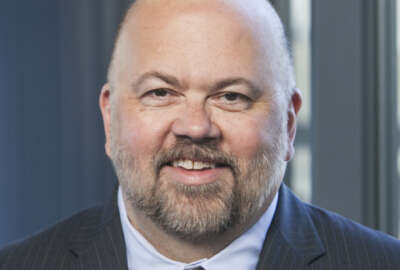
Leading by example
Real leadership development takes an agency that is willing to make the investment of time and money needed to build strong supervisors, says Jeff Neal, senior vice...
This column was originally published on Jeff Neal’s blog, ChiefHRO.com and was republished here with permission from the author.
The White House has announced the selectees for the inaugural class of the White House Leadership Development (WHLD) program. This diverse group of leaders from around government clearly have great experience and the potential to move into more senior leadership roles in government or the private sector. When the White House announced the program, I heard a lot of grumbling that there was no way the program could get started as quickly as the administration said it would. Kudos to everyone involved for not only getting a great program assembled, but also running a selection process that worked.
The WHLD is one of several initiatives intended to improve the training of leaders in government. The Department of Defense, in its “Force of the Future” proposal, is also planning a comprehensive approach to civilian talent management intended to “offer world class professional development opportunities to the civilian workforce.” Other agencies and departments are investing in leader development as well. Some of these programs are comprehensive, while others are “shake and bake” approaches that are unlikely to have any lasting benefit.

Why is leader development important? Because managers and supervisors can make or break an organization. The results of the Federal Employee Viewpoint Survey clearly point to the need for more effective leaders. So do exit survey results in many agencies that show problems with leadership among the top reasons employees leave agencies. HR folks who run the hiring process complain that getting managers involved in the hiring process is a challenge and one of the contributors to hiring problems. Employees who are sick of dealing with coworkers who cannot or will not do their jobs will tell you that ineffective leaders are a big part of the problem. All of those are true. Even if we changed our hiring and promotion processes to look for leadership and management skills rather than technical expertise when we fill leadership jobs, we still have more than 260,000 supervisors in the federal government. Many of those people have never gotten effective training or development opportunities.
One of the biggest problems is in agencies that approach leader development with the “shake and bake” approach. They focus on checking the box so they can say they did leader development. That usually looks like a 3-5 day program where they get some sort of leadership style assessment, some training on basic HR rules and maybe a session on dealing with conflict. Does anyone really believe that doing that transforms anything? That it gives those supervisors the skills they need to be effective? What it does is allow someone in the agency to say they offered training and then blame the supervisors for not being good enough. Failing to provide supervisors with the training they need to do their jobs is a leadership failure of immense proportions. We can say that supervisors should come into the job prepared to do it, but that overlooks the problem of selecting them based on technical skills rather than leadership abilities. We can say they should be able to pick it up along the way, but that overlooks what happens to the people they supervise while they are trying to absorb knowledge through some magical process of self-development.
More commentary from Jeff Neal
The bottom line is that real leadership development takes time. It takes classroom training. It takes assignments that help build critical skills. It takes exposure to other organizations and ways of doing things. It takes an agency that is willing to make the investment of time and money needed to build strong supervisors. At the Defense Logistics Agency, we built a 2-year leadership program for new supervisors. It was so effective that supervisors who had not been through the program asked to be able to participate. Other agencies such as NASA have also invested in effective leadership development programs. The Office of Personnel Management offers a superb program called Leadership for a Democratic Society at the Federal Executive Institute. The common denominator in these programs is scope, breadth of experience and investment of serious time.
The White House program recognizes the need to invest time and money in leaders. It is not large enough to meet all of the government’s leadership development needs, but it is a great start. It demonstrates by example the type of program that can actually make a difference. If every agency made that kind of investment, we could start to see the kind of real change the federal government needs. If they do not, then they should not expect to get real results.
Jeff Neal is a senior vice president for ICF International and founder of the blog, ChiefHRO.com. Before coming to ICF, Neal was the chief human capital officer at the Department of Homeland Security and the chief human resources officer at the Defense Logistics Agency
Copyright © 2025 Federal News Network. All rights reserved. This website is not intended for users located within the European Economic Area.




